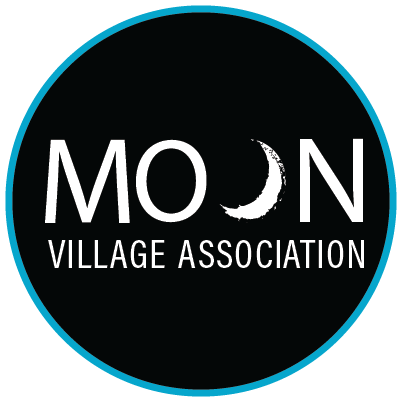
The Moon is again a target in the ambitions of many space actors. Some look at it with a sense of national prowess, some as an everlasting individual aspiration, some in pursuit of a commercial return, and a few others, like the Moon Village Association (MVA), as an opportunity to inspire new generations—those for whom the accomplishments of Apollo are just another significant moment often accounted by their parent’s distant memories—while reminding older generations of the benefits of thinking of humanity as a collective enterprise.
As a non-governmental organization based in Vienna, the MVA aims to become a link between government, industry, academia, and the general public to facilitate and enable conversations and plans around responsibly exploring and sustainably expanding humanity’s footprint on the Moon. Among many of its activities, the MVA currently holds permanent observer status at the United Nations Committee on the Peaceful Use of Outer Space (UNCOPUOS). Based on the figures reported on its website (https://moonvillageassociation.org/), the MVA counts at the time of writing with approximately 600 individual and 33 institutional members from more than 50 countries.
Given the renewed prevalence of the Moon and as part of the effort of bridging interests from multiple actors, the MVA founded in 2019 a new program aimed at fostering the development and launch of payloads to the lunar surface and its vicinity. With this program, the so-called Payload Project, the MVA envisions to create a framework that enables a series of missions to the Moon as a way to foster global cooperation and to continue inspiring the general public.
EPFL, led by the EPFL Space Center (eSpace) together with Professor Edoardo Charbon and Ph.D. student Minglo Wu from the Advanced Quantum Architecture (AQUA) Laboratory, has been recently provided with the opportunity to fulfill a key role as payload developer in MVA’s maiden mission to the Moon.
The project, currently under discussion between the MVA and EPFL teams, could result in EPFL flagship endeavor to fly our very own scientific instrument all the way to the surface of the Moon.
You must be logged in to post a comment.